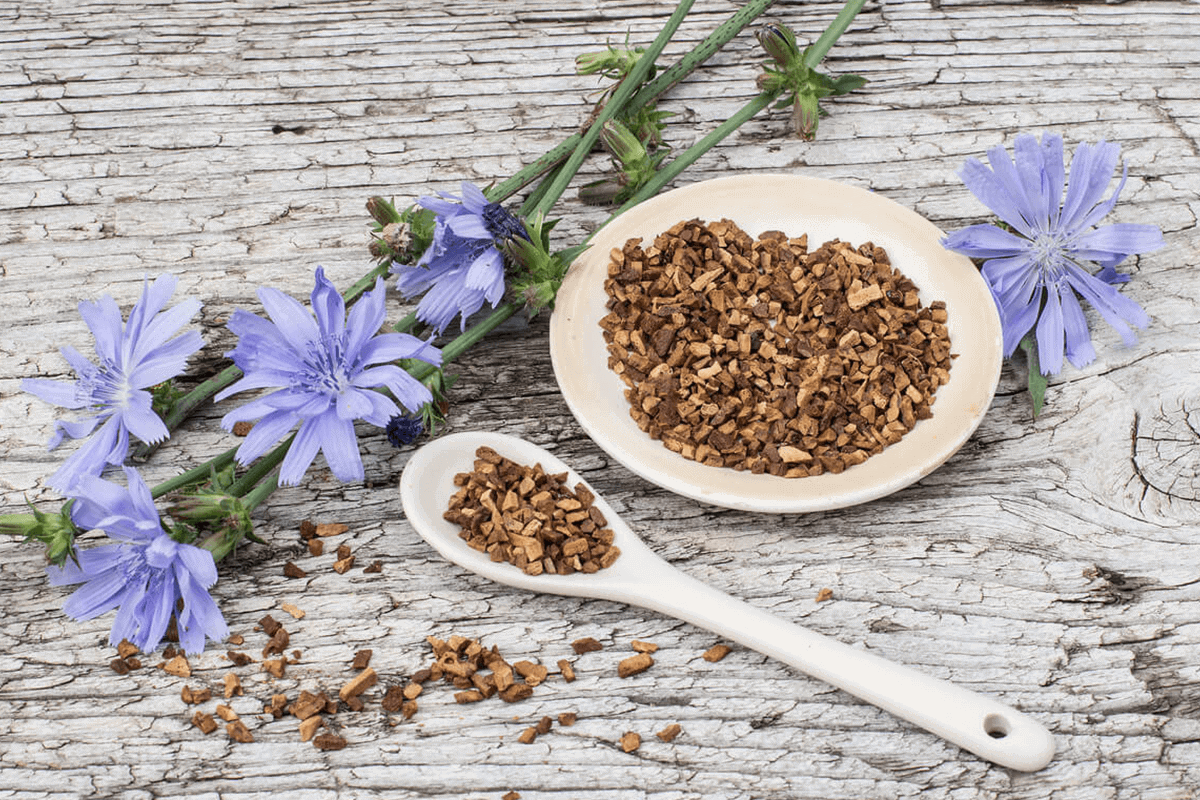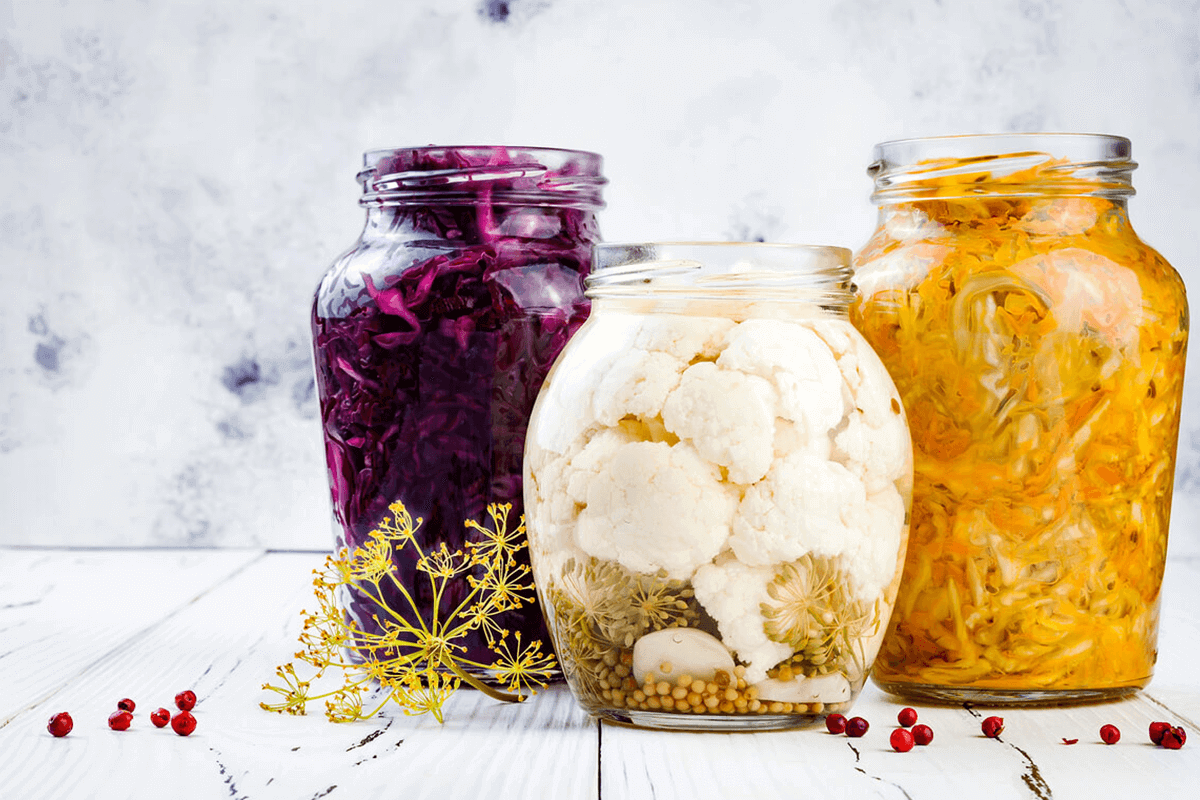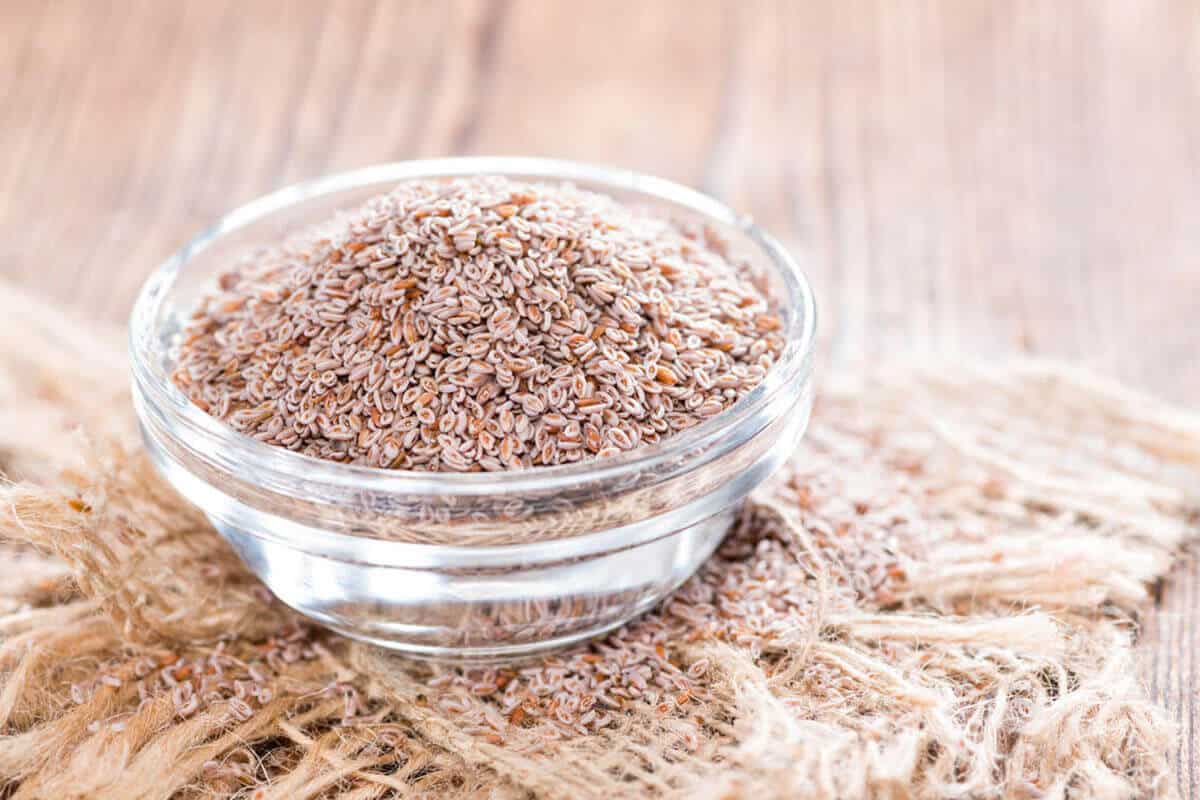Approximately five to 30% of individuals in Western countries suffer from constipation. (8)(19) Symptoms of constipation and constipation-predominant irritable bowel syndrome (IBS-C) can significantly impact an individual’s quality of life. (14) Treatment for constipation and IBS-C may include dietary and lifestyle modifications, as well as certain dietary supplements, such as inulin, probiotics, and psyllium husk.
 Causes and risk factors associated with constipation include being female, infection in the digestive tract, and low dietary fiber intake.
Causes and risk factors associated with constipation include being female, infection in the digestive tract, and low dietary fiber intake.
 Inulin is commonly derived from the roots of chicory, a medicinal herb.
Inulin is commonly derived from the roots of chicory, a medicinal herb.
 Food sources of probiotics include sauerkraut, kimchi, unpasteurized pickled vegetables, and yogurt.
Food sources of probiotics include sauerkraut, kimchi, unpasteurized pickled vegetables, and yogurt.
 Psyllium husk is produced from the seeds of several plants in the Plantago genus.
Psyllium husk is produced from the seeds of several plants in the Plantago genus.

What is constipation?
Constipation is an intestinal dysfunction characterized by hard stools, abdominal pain, abdominal swelling or distension, and a feeling of incomplete elimination. (19) Constipation may also be a symptom of irritable bowel syndrome (IBS), a group of functional disorders that affect the digestive system. The pathophysiology of IBS is complex but may involve an imbalance of gut microbiota (5) and dysfunction in gut-brain communication. (9) Several mechanisms of the condition have been identified, including altered motility and transit, psychosocial factors, and heightened sensitivity of the intestine or colon. (14) The different types of IBS include:- IBS-D: diarrhea-predominant
- IBS-C: constipation-predominant
- IBS-M or IBS-A: a combination of both diarrhea and constipation (9)
Constipation causes and risk factors
Several causes and risk factors have been associated with constipation and IBS-C, including:- Age: increased risk in the elderly
- Certain health conditions (e.g., celiac disease, diabetes, hypothyroidism, Parkinson’s disease)
- Certain medications (e.g., antacids, anticonvulsants, calcium channel blockers, diuretics)
- Ethnicity: increased risk in non-Caucasians
- Gender: increased risk in females
- Insufficient hydration
- Iron-containing dietary supplements
- Low dietary fiber intake
- Physical inactivity (4)(11)(15)(10)
Constipation signs, symptoms, and complications
Symptoms of IBS may appear, disappear, and change over time. (14) The signs and symptoms of IBS-C and general constipation include:- Hard or compact stools
- Increased effort to eliminate
- Stool frequency less than three times per week
- The sensation that elimination is incomplete
- The sensation that elimination is obstructed (19)
Supplement ingredients for constipation relief
The supplements outlined below have demonstrated effectiveness in addressing constipation.
Inulin
Inulin is a prebiotic fiber present in the roots and rhizomes of various plants, such as chicory, garlic, and artichoke. (19) Inulin resists digestion by human digestive enzymes, meaning it passes through the small intestine to reach the colon, where it is fermented by bacteria. (8) Prebiotics, including inulin, have been shown to alter the composition of intestinal microbiota by increasing beneficial Bifidobacterium and Lactobacillus. (15)(19) Several mechanisms have been proposed to explain the beneficial effects of prebiotics in cases of constipation, including modulation of gut microbiota, reduction of intestinal pH, and increases in bowel movements, stool weight, and water content in the colon. Further, supplementation of inulin may also decrease pathological Clostridium bacteria. (15) Inulin has demonstrated effectiveness in improving transit time, stool frequency, stool consistency, and hardness of stool. (15)
Probiotics
Probiotics are live microorganisms found in fermented foods and dietary supplements that confer beneficial effects to the host once consumed. Research has demonstrated that certain strains of bacteria may improve symptoms of IBS, antibiotic-associated diarrhea, gastroenteritis, and Clostridium difficile infections. (5) Probiotics may address constipation through their ability to improve intestinal motility, modify gastrointestinal microflora, and alter biochemical factors in the gut. (6) When applied clinically, it’s important to consider the specific strains of probiotics used as studies have shown that the benefits of a specific strain may not apply to other bacterial strains, even from the same species. (5) Bacillus subtilis and Streptococcus faecium have been shown to improve abdominal pain, stool consistency, and stool frequency. (3) One study found that Lactobacillus reuteri significantly improved pain, bloating, gas, and abdominal discomfort. (13) Further research has shown that Bifidobacterium longum may improve constipation symptoms in elderly patients. (7)(13)

